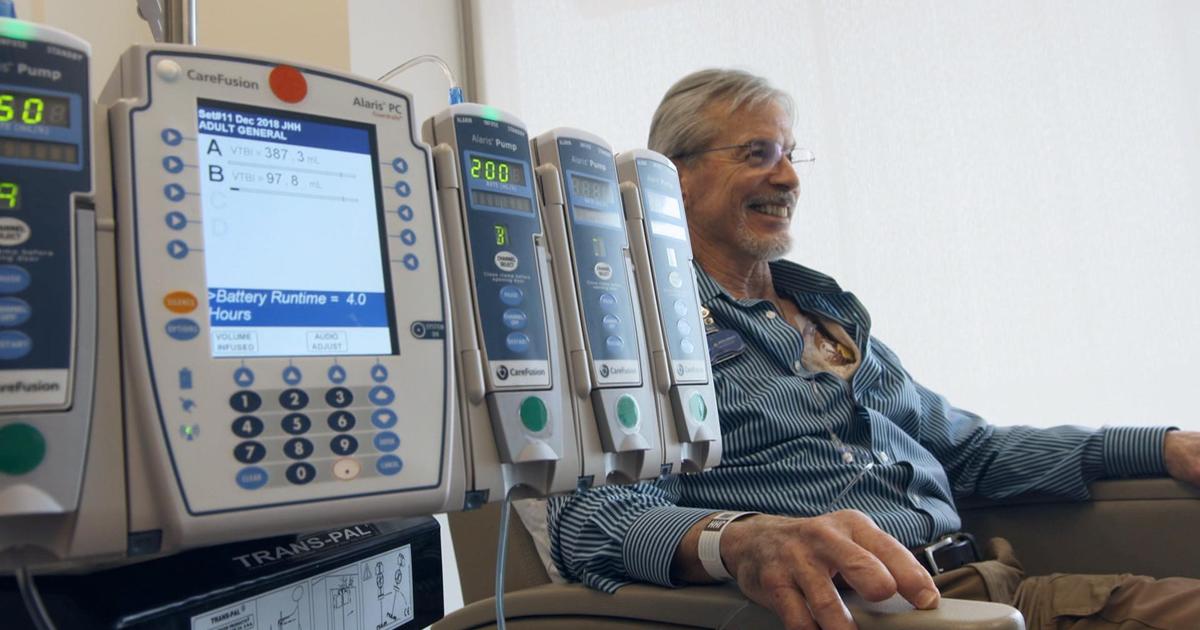New Hope for One of Deadliest Forms of Cancer
I’m not a game show fan, but I am a trivia fan and have watched Jeopardy when the occasion arises. The host of the show is Canadian born Alex Trebek, who has been hosting Jeopardy since 1984. I was shocked when I learned that Trebek is 78-year-old and only hope I look has a good as he does when I reach that age, which is only 11 years away, especially after learning of his recent health issues.
In December 2007, he suffered a minor heart attack. In July 2011, he injured his Achilles tendon while chasing a burglar from his hotel room in San Francisco. In June 2012, he suffered a second mile heart attack and in October 2017, he fell and underwent surgery to remove blood clots in his brain. In March 2019, it was revealed that Trebek had Stage IV pancreatic cancer. He has been undergoing treatment while still hosting Jeopardy.
The prognosis for people with pancreatic cancer is probably one of the worst for most kinds of cancer. According to the American Cancer Society:
- About 56,770 people (29,940 men and 26,830 women) will be diagnosed with pancreatic cancer.
- About 45,750 people (23,800 men and 21,950 women) will die of pancreatic cancer.
While pancreatic cancer only accounts for about 3% of all cancers, it accounts for 7% of all cancer deaths.
I saw a recent report that stated that Alex Trebek’s pancreatic cancer is responding to treatment and that his cancer is shrinking, but that does not mean he’s out of the woods yet.
A new report out of Israel promises hope for those suffering from pancreatic cancer:
“The research was conducted by Dr. Talia Golan, the head of Sheba’s Pancreatic Cancer Center. Specifically, her research centered on evaluating the safety and testing the efficacy of a new drug treatment regimen known as POLO in order to treat a specific type of metastatic pancreatic cancer in carriers of the BRCA 1 and BRCA 2 mutation, which runs largely in Ashkenazi Jews and typically makes these individuals susceptible to breast and ovarian cancers.”
“‘The POLO trial using the medicine Lynparza offers potential hope for those who suffer from metastatic pancreatic cancer and have a BRCA mutation,’ Dr. Golan said.”
“Lynparza is also known as olaparib.”
“‘This treatment also exemplifies the advent of ‘precision medicine’ based on a specific genetic biomarker, BRCA 1 and 2,’ she said.”
“…BRCA 1 and BRCA 2 are human genes that produce proteins responsible for repairing damaged DNA and play an important role in maintaining the genetic stability of cells, Sheba explained in its release. When either of these genes is mutated such that its protein product either is not made or does not function correctly, DNA damage may not be repaired properly, and cells become unstable. As a result, cells are more likely to develop additional genetic alterations that can lead to cancer.”
“Berger said the results show that those patients from around the world who received the treatment – a round of chemotherapy and then several treatments with olaparib – did much better than those who did not receive the drug in terms of response, time to progression and quality of life.”
This study is not an initial one, but one prompted by a previous study and several other studies, which means that it is a big step closer to becoming an accepted treatment.









Recent Comments